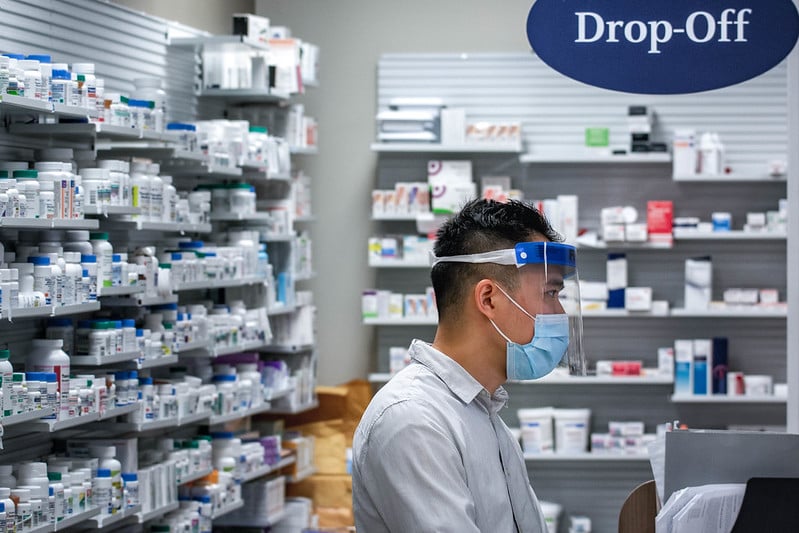Cancer patients across the UK are making desperate choices. They are skipping meals to save their medication. This isn’t about appetite loss from treatment. It’s about rationing a drug they need to survive.
The medication is called Creon. Without it, people with pancreatic cancer, cystic fibrosis, and chronic pancreatitis cannot digest food properly. Their bodies can’t absorb nutrients. They lose weight and become too weak for chemotherapy.
More than 61,000 patients in the UK depend on this drug. A recent survey found that 96% of pharmacies struggle to supply it. Another 89% cannot find alternatives either.
The Human Cost Behind the Numbers
Alice from Birmingham knows this struggle well. She was diagnosed with pancreatic cancer in 2023. Initially, she received 15 boxes of Creon capsules monthly. Now she can only get six or seven boxes.
“Each day I’m trying to balance: what shall I eat, shall I have a more substantial meal, shall I take my supplements,” Alice explained. The constant worry creates extra stress while she fights cancer.
The 64-year-old has started skipping snacks to make her medication last longer. For cancer patients, proper nutrition is not optional. It is what keeps them strong enough for treatment.
Some patients travel over 30 miles searching for the drug. Others contact multiple pharmacies hoping someone has stock. The lucky ones find a few capsules. Many go without.
Pharmacies at Breaking Point
Pharmacists describe this as one of the worst shortages they have seen. The National Pharmacy Association surveyed 300 pharmacies. The results paint a grim picture.
Olivier Picard, who chairs the association, said pharmacies spend hours hunting for stock. Staff watch frustrated patients leave empty-handed. Some describe it as the “worst stock shortage” they’ve handled.
The government has tools to help. Serious Shortage Protocols let pharmacists give smaller amounts without new prescriptions. They can also offer alternatives when available. But 81% of pharmacies say these measures are not enough.
Dr Leyla Hannbeck runs the Independent Pharmacies Association. She says the shortage has lasted too long without effective solutions. “It seems no effective attempts are being made by officials to make the process easier,” she noted.
Similar Posts:
Why This Crisis Happened
The Department of Health and Social Care acknowledges European-wide supply problems. They blame limited raw ingredients and manufacturing constraints. These aren’t just UK problems.
Brexit has made things worse. New trade barriers and paperwork make the UK market less attractive to drug companies. The government’s pricing agreements also discourage manufacturers from prioritizing British patients.
Pharmaceutical companies face tough choices. They can sell their limited supplies to countries with better prices and fewer complications. Or they can navigate UK bureaucracy for smaller profits.
The COVID-19 pandemic stressed global supply chains. Economic instability and conflicts add more pressure. When everything goes wrong at once, patients pay the price.
Beyond Physical Health
This crisis extends beyond physical symptoms. Patients report severe mental health impacts. The fear of running out creates constant anxiety.
Caregivers also suffer. They spend hours calling pharmacies and driving long distances. They watch loved ones weaken while feeling helpless.
Alice describes the profound effect on her mental health. Cancer treatment is already overwhelming. Adding medication shortages creates another layer of stress when patients need stability most.
Government Response Under Scrutiny
Officials say they are working with industry and the NHS to solve the problem. The Serious Shortage Protocol for Creon has been extended until November 2025. This extension signals ongoing concern about supplies.
But critics argue current measures fall short. The Health and Social Care Committee recommended reviewing supply chains in their 2024 report. They suggested giving pharmacists more flexibility to change prescriptions.
The government responded in January 2025, considering an independent review. They are exploring options to help pharmacists make safe substitutions. An All-Party Parliamentary Group launched an inquiry in December 2024.
Pancreatic Cancer UK has raised concerns for over a year. Alfie Bailey-Bearfield from the charity calls the situation “totally unacceptable.” He demands immediate action to boost supplies.
The charity emphasizes that thousands of patients need these tablets every time they eat. “Something most of us take for granted,” Bailey-Bearfield noted. Yet patients face desperate measures that risk their health and treatment eligibility.
Looking Forward
Experts predict shortages could continue into next year. This timeline means more patients will face impossible choices between eating and saving medication.
The National Pharmacy Association and patient groups call for a national strategy. They want changes allowing pharmacists to make safe substitutions more easily. Current laws limit their ability to help patients.

Some suggest the UK needs more domestic drug manufacturing. Relying on global supply chains leaves patients vulnerable when problems occur. Others point to pricing policies that drive manufacturers away.
The situation demands urgent attention. Cancer patients shouldn’t have to choose between meals and medication. In a developed healthcare system, such choices represent systematic failure.
While officials work on long-term solutions, patients like Alice continue their daily struggles. They balance nutrition needs against medication supplies, hoping their next pharmacy visit will not end in disappointment.
The shortage of Creon highlights broader vulnerabilities in the UK’s medicine supply. Until these underlying issues get addressed, more patients will face similar crises. The question remains whether action will come fast enough for those who need it now.


















